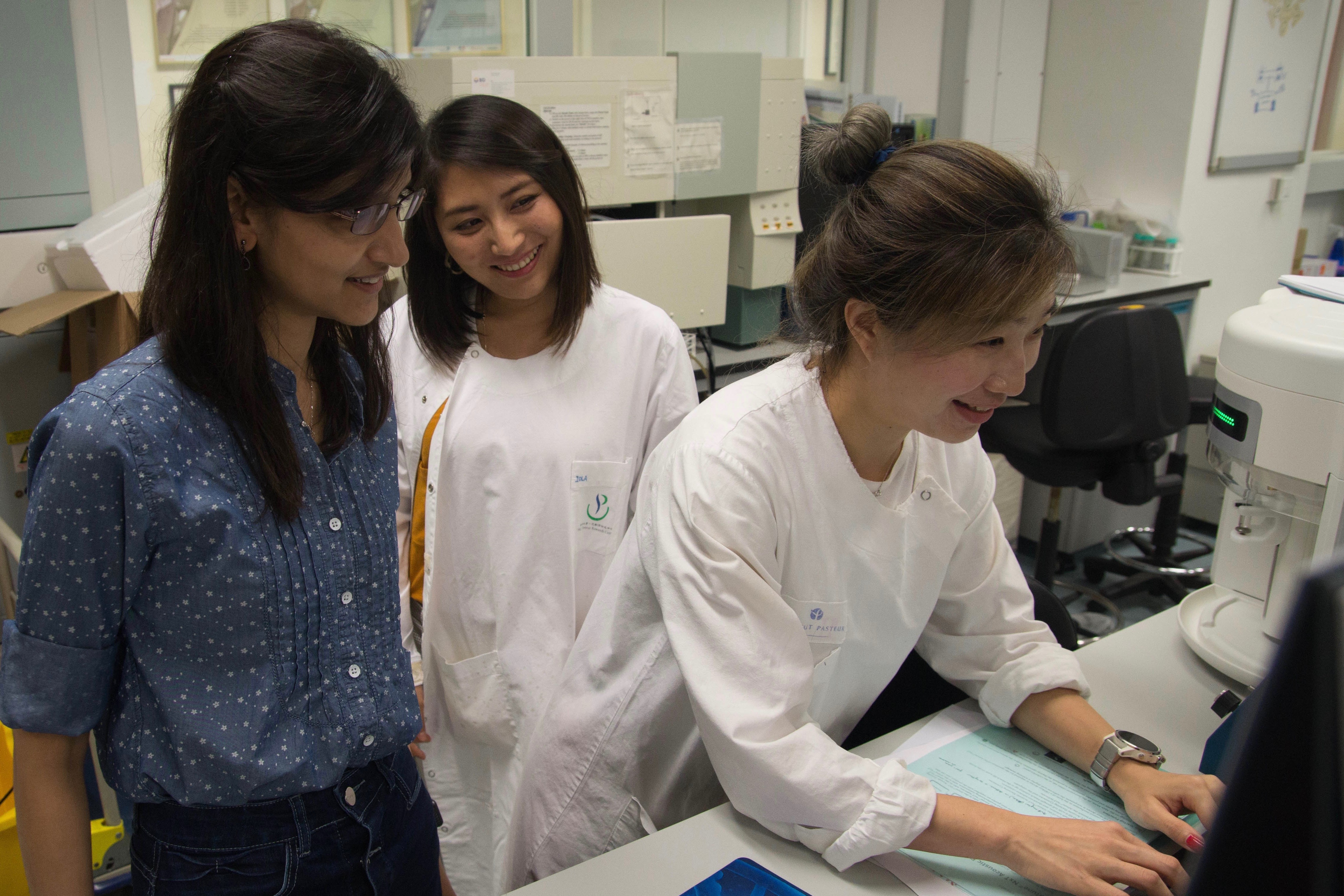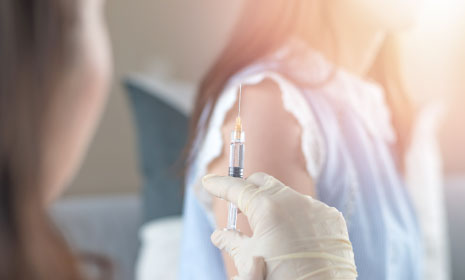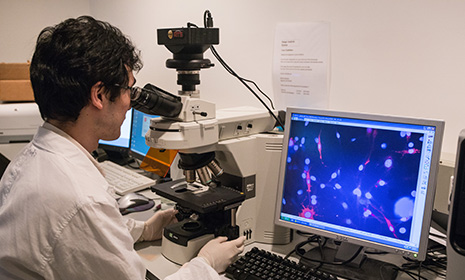HKU-Pasteur Research Pole advances the understanding of viral infection mechanism on dengue fever and related flavivirus diseases
July 13, 2018
A research team led by scholars at HKU-Pasteur Research Pole, School of Public Health, Li Ka Shing Faculty of Medicine at The University of Hong Kong (HKU) advances the understanding of viral infection mechanism of dengue fever and related flavivirus diseases by proving the importance of ubiquitin modifications in attenuating virus production, thus providing a solid foundation to further the development of effective therapeutic interventions against flavivirus infections. The findings are now published in Cell Host & Microbe, a leading peer-reviewed scientific journal (link to the publication).
Background
Dengue virus is the most prevalent mosquito-borne viral pathogen and has become a global threat in recent decades, causing an estimated 100 million infections worldwide every year. Currently, there is no antiviral against dengue available and the efficacy of corresponding vaccine is yet to be assessed. Thus, there is a strong need to develop therapeutic strategies that can tackle this life threatening disease.
Understanding the host cellular pathways that are exploited in the course of infection can provide insights into the development of antivirals and vaccine against dengue. A small tag-like regulatory protein, namely ubiquitin, can be added to or removed from other proteins via a mechanism called ubiquitin modification. The modification system has been reported to be involved in a diverse array of infectious diseases including dengue, yet a precise understanding of how ubiquitin modifications regulate either the host or viral components remains unknown. This study aims to address this question.
Research method and findings
The research team employed a functional proteomics screen to target candidates that are differentially modified by ubiquitin upon dengue virus infection. Several lipid droplet-associated proteins were isolated; amongst others, Aup1, a membrane protein that is typically modified by ubiquitin, was retrieved specifically in its unmodified form upon infection. Aup1 associated with dengue viral protein NS4A and relocalized from lipid droplets to lipid degradative vesicles. Virus production was found to be abolished in cells with Aup1 deletion or containing a catalytically inactive Aup1 mutant.
Ubiquitin modification disrupted the Aup1-NS4A interaction, resulting in inhibited enzymatic activity of Aup1, defective lipid droplet degradation and attenuated virus production.
Significance of the study
This research describes a novel mechanism where dengue viral protein NS4A exploits the enzymatic activity of Aup1 to trigger lipid droplet degradation, which is a process regulated by the ubiquitin modification system. This mechanism appears to be a general phenomenon employed during the biogenesis of viruses from the same family as dengue, including Zika and West Nile virus.
The study provides insights into the fundamental mechanism underlying viral infection and underscores the critical role of ubiquitin modifications in the process. This important finding will facilitate further advancement of therapeutic interventions against flavivirus infections.
About the research team
This international collaborative study was led by Dr Sumana Sanyal, Assistant Professor of HKU-Pasteur Research Pole, HKU School of Public Health. The research team also included Dr Jingshu Zhang and Dr Yun Lan, Post-doctoral Fellows of HKU-Pasteur Research Pole, School of Public Health. International collaborators who contributed to this study included Dr Elizabeth Klemm at Wellcome Trust Sanger Institute, the United Kingdom; Professor Christoph Thiele at University of Bonn, Germany; and Dr Joseph Ashour at Icahn School of Medicine at Mount Sinai, The U.S.A.
The research was funded by Research Grants Council of University Grants Committee, and partially supported by the Health and Medical Research Fund and Theme Based Research Grant of the Research Grants Council; Transversal Research Program from Institut Pasteur and contribution from BNP Paribas. Dr Sanyal is supported by the Croucher Foundation.
Media enquiries, please contact:
HKU-Pasteur Research Pole, School of Public Health, HKU:
Dr Sumana Sanyal (Tel: 2831 5524 | Email: sanyal@hku.hk)
Li Ka Shing Faculty of Medicine of The University of Hong Kong
Email: medkefa@hku.hk

Dr Sumana Sanyal (left) and her team advance the understanding of viral infection mechanism on dengue fever and related flavivirus diseases








.png)
